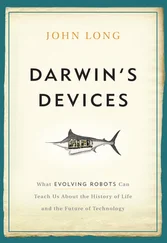Oliphant smiled as if gratified by the rebuke. He asked: 'Wasn't the scientist who killed himself, Dr Toby Gledhill, working on the research side here with you? I thought I read something about that in one of the local papers.'
'Yes. He was my assistant here. Tobias Gledhill was a physicist who was also an exceptionally talented computer expert. He is very much missed as a colleague and a man.'
And that, thought Rickards, disposes of Toby Gledhill. From another man the tribute could have been moving in its simplicity. From Mair it sounded like a bleak dismissal. But then, suicide was messy and embarrassing. He would find repugnant its intrusion into his neatly organized world.
Mair turned to Rickards. 'I have a great deal to do this morning, Chief Inspector, and no doubt you have too. Is this really relevant?'
Rickards said stolidly: 'It helps fill in the picture. I suppose you booked in when you arrived here yesterday night and subsequendy booked out?'
'You saw something of the system when you arrived. Every member of the staff has a signed identity badge with a photograph and a personal number which is confidential. The number is electronically registered when the man or woman enters the site and there is, in addition, a visual check of the badge by the gate staff. I have a total staff of five hundred and thirty people working in three shifts covering the twenty-four hours. At the weekend there are two shifts, the day staff coming on from 8.15 until 20.15 and the night from 20.15 until 8.15.'
'And no one could enter or leave undetected, not even the Director?'
'No one, least of all, I imagine, the Director. My check-in time will be recorded and I was seen arriving and leaving by the gate officer on duty.'
'There is no other way into the station except through the guard house?'
'Not unless you emulate the heroes of old war films and tunnel deep under the wire. No one was tunnelling here on Sunday night.'
Rickards said: 'We shall need to know the movements of every member of the staff on Sunday from early evening until 10.30 when Commander Dalgliesh discovered the body.'
'Isn't that an unnecessarily large spread of time? Surely she was killed shortly after nine?'
'That seems the most likely time of death and we expect to get a more accurate estimate from the post-mortem report. At present I prefer to make no assumptions. We have copies of the forms which were distributed in connection with the Whistler inquiry which we would like to issue to all the staff. I imagine that the great majority can be easily eliminated. Most people who have any family or social life can provide an alibi for Sunday evening. Perhaps you could suggest how the forms can be distributed with as little disturbance to the work here as possible.'
Mair said: 'The simplest and most effective way would be to leave them in the guard house. Each member of staff could be given one when he or she checks in. Those staff who are off sick or on leave today will have to receive them at home. I can supply their names and addresses.' He paused and then added: 'It seems to me highly unlikely that this murder has anything to do with Larksoken Power Station, but as Hilary Robarts worked here and you will be interviewing members of staff, it might be helpful if you have some idea of the layout and organization. My PA has put up a file for you with a diagram of the site, a booklet describing the operation of the reactor which will help to give you some idea of the different functions carried out, a list of staff by name and grade and a copy of the existing managerial structure and the operations staff shift rota. If you want to see any particular department I can arrange for you to be escorted. Certain areas cannot, of course, be entered without protective clothing and a subsequent radiological check.'
The file was ready in his right-hand drawer and he handed it over. Rickards took it and studied the organization chart. After a moment he said: 'You have seven divisions, each with a head of department; Medical Physicist, Station Chemist, Operations Superintendent, Maintenance Superintendent, Reactor Physicist, Works Office Engineer and the station Administrative Officer, the post held by Hilary Robarts.'
'Temporarily held. The station Administrative Officer died of cancer three months ago and the post has not yet been filled. We are also about to reorganize the internal administration into three main divisions as at Sizewell where they have what I think is a more effective and rational system. But the future here is uncertain, as you've probably heard, and there may be a case for waiting until a new Director or Station Manager is in post.'
Rickards said: 'And at present the station Administrative Officer is responsible to you through the Deputy Director?'
'Through Dr James Macintosh, that is right. Dr Macintosh is at present in the States studying their nuclear installations and has been for the past month.'
'And the Operations Superintendent – Op. Super, as it says here – is Miles Lessingham, who was one of the guests at Miss Mair's dinner party on Thursday.'
Alex Mair didn't reply.
Rickards went on: 'You've been unfortunate, Dr Mair. Three violent deaths of members of your staff within the space of two months. First Dr Gledhill's suicide, then Christine Baldwin's murder by the Whistler, and now Hilary Robarts.'
Mair asked: 'Have you any doubts that Christine Baldwin was killed by the Whistler?'
'None at all. Her hair was found with that of other victims when he killed himself, and her husband, who would normally be the obvious first suspect, has an alibi. He was driven home by his friends.'
'And Toby Gledhill's death was the subject of an inquest, "death while the balance of his mind was disturbed", that convenient sop to convention and religious orthodoxy.'
Oliphant asked: 'And was the balance of his mind disturbed, sir?'
Mair turned on him his ironic and speculative gaze. 'I have no way of knowing the state of his mind, Sergeant. What I am sure of is that he killed himself and that he did it unaided. No doubt at the time he felt he had sufficient reason. Dr Gledhill was a manic depressive. He coped courageously with his disability and it rarely interfered with his work. But with that psychological make-up, suicide is always an above-average risk. And if you agree that the three deaths are unrelated, then we needn't waste time on the first two. Or was your statement, Chief Inspector, intended as a general commiseration?'
Rickards said: 'Just a comment, sir.' He went on: 'One of your staff, Miles Lessingham, found Christine Baldwin's body. He told us then that he was on his way to have dinner with you and Miss Mair. I suppose he gave you all a graphic description of his experience. Natural I'd say. Difficult thing to keep to yourself
Mair said calmly: 'Virtually impossible, wouldn't you say?' He added: 'Among friends.'
'Which he was, of course. All friends together, including
Miss Robarts. So you got all the gory details fresh from the scene. Including the ones he'd been specifically told to keep to himself.'
'Which were they, Chief Inspector?'
Rickards didn't reply. Instead he asked: 'Could I have the names of everyone who was present in Martyr's Cottage when Mr Lessingham arrived?'
'My sister and I, Hilary Robarts, Mrs Dennison, the housekeeper from the Old Rectory, and Commander Adam Dalgliesh of the Metropolitan Police. And the Blaney child – Theresa, I think she's called – was helping my sister with the meal.' He paused and then added: 'These inquiry forms which you're proposing to issue to all members of staff; I suppose it is necessary to take up their time in this way. Isn't it fairly plain what happened here? Surely this is what your people call a copycat murder.'
Rickards said: 'It was that all right, sir. All the details correct. Very clever, very convincing. Just the two differences. This murderer knew his victim and this murderer is sane.'
Читать дальше












